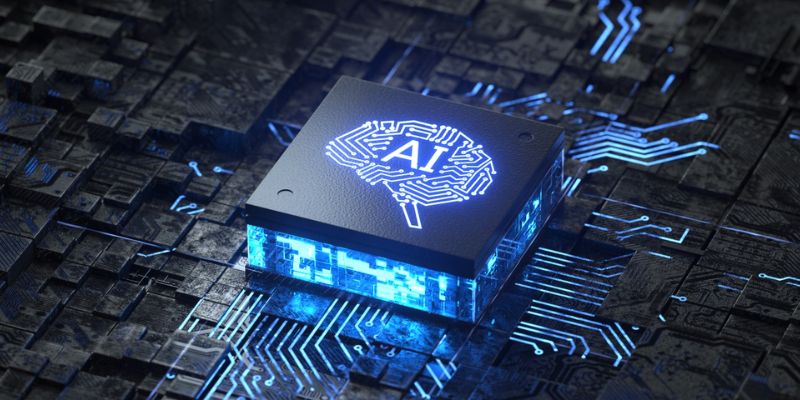Artificial Intelligence (AI) has quickly become one of the most transformative technologies of our time, impacting industries from healthcare to finance. One area where AI is making significant strides is cybersecurity, particularly in ethical hacking. Ethical hackers, trained through programs like the Ethical Hacking Course in Pondicherry, play a crucial role in protecting organizations from cyber threats. With AI, they are now equipped with advanced tools that enhance and challenge their work. This blog will explore how AI is shaping the future of ethical hacking, enhancing threat detection, and addressing the ethical implications associated with AI-powered hacking tools.
AI Impacting the Future of Ethical Hacking
The Rise of AI in Cybersecurity
The rapid growth of cyber threats has pushed the cybersecurity industry to adopt advanced technologies, with AI leading the charge. Unlike traditional security methods that rely on predefined rules, AI can learn from data and recognize new patterns, making it far more adaptive and responsive to evolving threats. AI offers ethical hackers a powerful advantage by enhancing their ability to identify vulnerabilities, detect unusual activities, and respond to cyber attacks more effectively. AI’s ability to process and analyze massive amounts of data in real time means ethical hackers can avoid increasingly sophisticated threats and protect valuable information.
AI-Driven Threat Detection
One of the biggest advantages of AI in ethical hacking is its ability to detect threats that human analysts might miss. AI-driven threat detection tools can analyze large data sets for anomalies and suspicious patterns, flagging potential risks long before they escalate into actual attacks. This proactive approach enables ethical hackers to act on threats swiftly, often preventing breaches before they happen. With machine learning algorithms, AI systems continuously improve, learning from past data and attacks to identify emerging threats more accurately. This ability to adapt and learn makes the Artificial Intelligence Course in Madurai a valuable ally in cybersecurity.
Vulnerability Assessment and Penetration Testing with AI
Vulnerability assessment and penetration testing (VAPT) are core activities for ethical hackers, involving the identification of potential weak spots in a system and testing for their exploitability. AI can automate these tasks, making VAPT faster, more efficient, and more comprehensive. Ethical hackers can scan systems more thoroughly with AI, covering areas that manual assessments might overlook. Additionally, AI-driven tools can prioritize vulnerabilities based on their risk level, helping ethical hackers focus on the most critical areas that require immediate attention. This integration of AI in VAPT processes has significantly improved the quality and speed of security assessments.
Automation in Ethical Hacking
One of the most significant contributions of AI to ethical hacking is automation. Ethical hackers often deal with repetitive tasks like scanning networks, analyzing logs, and testing for vulnerabilities. AI-powered automation tools handle these routine tasks, freeing ethical hackers from the Ethical Hacking Course in Madurai to focus on strategic security issues that require human intelligence and creativity. By automating repetitive processes, AI enhances productivity and reduces the likelihood of human error, which is crucial in maintaining high cybersecurity standards. Automation in ethical hacking allows for more consistent and accurate security checks, ensuring that nothing important slips through the cracks.
AI in Social Engineering Detection
Social engineering attacks exploit human psychology rather than technical vulnerabilities, making them challenging to detect and prevent. However, AI can help ethical hackers recognize potential social engineering attacks through behavior analysis and pattern recognition. AI tools can monitor user behavior, detect inconsistencies, and flag unusual activity that could indicate a social engineering attempt, such as phishing emails or fraudulent communications. By providing real-time alerts, AI empowers ethical hackers to mitigate social engineering risks, among the most difficult cyber threats to counter.
Predictive Analysis in Cybersecurity
Predictive analysis is a game-changer in ethical hacking, allowing hackers to foresee potential vulnerabilities and threats before they materialize. Using AI-driven predictive analytics, ethical hackers can analyze past cyber incidents, identify patterns, and anticipate future attacks, enabling them to implement defensive measures in advance. This proactive approach, which is emphasized in a Cyber Security Course in Madurai, is essential for staying ahead in an ever-evolving threat landscape. By focusing resources on areas where breaches are most likely, ethical hackers trained through such courses can shift cybersecurity from a reactive stance to a proactive strategy, ultimately enhancing organizational resilience against cyber threats.
Challenges and Ethical Considerations
While AI brings numerous advantages to ethical hacking, it also presents challenges. One of the main concerns is the potential misuse of AI for malicious purposes. Just as ethical hackers can use AI to enhance security, cybercriminals can leverage the same technology to create more sophisticated attacks. Additionally, the reliance on AI can sometimes lead to over-dependence, with some organizations needing more human oversight. Ethical hackers must remain vigilant and balance AI-driven automation and human intuition. Addressing these ethical and security concerns is essential to ensure AI remains a force for good in the cybersecurity field.
The impact of AI on ethical hacking is profound and transformative, providing ethical hackers with tools that enhance their capabilities, streamline their processes, and improve threat detection. From predictive analytics to automation and vulnerability assessment, AI enables ethical hackers from the Artificial Intelligence Course in Pondicherry to tackle cybersecurity challenges more effectively. However, as AI continues to evolve, it is crucial to address the ethical implications and ensure the responsible use of these powerful tools. The future of ethical hacking with AI holds great promise, but it will require ongoing vigilance, collaboration, and ethical considerations to harness AI’s potential fully and safely. As AI advances, it will likely play an even more significant role in shaping the future of cybersecurity, making it an exciting time for ethical hackers and the broader tech community.

